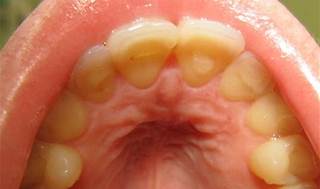A client with an eating disorder avoids meals and snacks. What nursing intervention should the nurse implement to address this behavior?
Allow the client to continue avoiding meals to reduce stress.
Provide positive reinforcement for not eating to encourage progress.
Supervise meals and snacks to prevent food refusal or hiding.
Advise the client to eat alone to avoid social pressure.
The Correct Answer is C
Choice A rationale:
Allowing the client to continue avoiding meals to reduce stress is not a suitable nursing intervention. It perpetuates the unhealthy behavior and does not contribute to the client's recovery.
Choice B rationale:
Providing positive reinforcement for not eating to encourage progress is also not appropriate. Positive reinforcement should be directed towards healthy behaviors rather than reinforcing the avoidance of meals.
Choice C rationale:
Supervising meals and snacks to prevent food refusal or hiding is an essential nursing intervention. Patients with eating disorders often engage in secretive behaviors related to food, so supervision helps ensure that they are receiving the necessary nutrition and support their recovery.
Choice D rationale:
Advising the client to eat alone to avoid social pressure is not a recommended intervention. Eating disorders thrive on isolation, and encouraging the client to eat alone could exacerbate the issue.
Nursing Test Bank
Naxlex Comprehensive Predictor Exams
Related Questions
Correct Answer is ["A","B","C","D"]
Explanation

The correct answer is a. Recurrent episodes of binge eating, b. Inappropriate compensatory behaviors to prevent weight gain, c. Normal or slightly above normal body weight, d. Sense of lack of control over eating.
Choice A rationale:
Recurrent episodes of binge eating are a key diagnostic criterion for bulimia nervosa. This involves consuming a large amount of food in a short period while feeling a lack of control over eating.
Choice B rationale:
Inappropriate compensatory behaviors, such as self-induced vomiting, misuse of laxatives, fasting, or excessive exercise, are used to prevent weight gain and are essential for diagnosing bulimia nervosa.
Choice C rationale:
Individuals with bulimia nervosa often maintain a normal or slightly above normal body weight, which can make the disorder less noticeable compared to anorexia nervosa.
Choice D rationale:
A sense of lack of control over eating during binge episodes is a critical feature of bulimia nervosa.
Choice E rationale:
Acknowledgment of the problem is not a diagnostic criterion for bulimia nervosa. Many individuals with bulimia may not recognize or admit they have a problem.
Correct Answer is C
Explanation
Choice A rationale:
This choice is inappropriate. In anorexia nervosa, encouraging the client to eat more may not address the underlying psychological and emotional issues related to the disorder. It oversimplifies the complexity of the disorder and could further exacerbate the client's anxiety about weight gain.
Choice B rationale:
This choice is inappropriate. Telling the client to stop restricting food intake oversimplifies the challenges of anorexia nervosa. Recovery involves addressing both the physical and psychological aspects of the disorder, and such a statement may not provide the necessary support and understanding.
Choice C rationale:
This choice is accurate. This statement acknowledges the client's fear of gaining weight while also emphasizing the importance of their health. It demonstrates empathy and understanding while promoting a balanced perspective on the client's concerns.
Choice D rationale:
This choice is inappropriate. Encouraging the client to exercise more as a way to increase appetite overlooks the fact that anorexia nervosa is not solely about appetite suppression. The disorder involves complex psychological factors that cannot be addressed through simple solutions like increased exercise.
Whether you are a student looking to ace your exams or a practicing nurse seeking to enhance your expertise , our nursing education contents will empower you with the confidence and competence to make a difference in the lives of patients and become a respected leader in the healthcare field.
Visit Naxlex, invest in your future and unlock endless possibilities with our unparalleled nursing education contents today
Report Wrong Answer on the Current Question
Do you disagree with the answer? If yes, what is your expected answer? Explain.
Kindly be descriptive with the issue you are facing.
